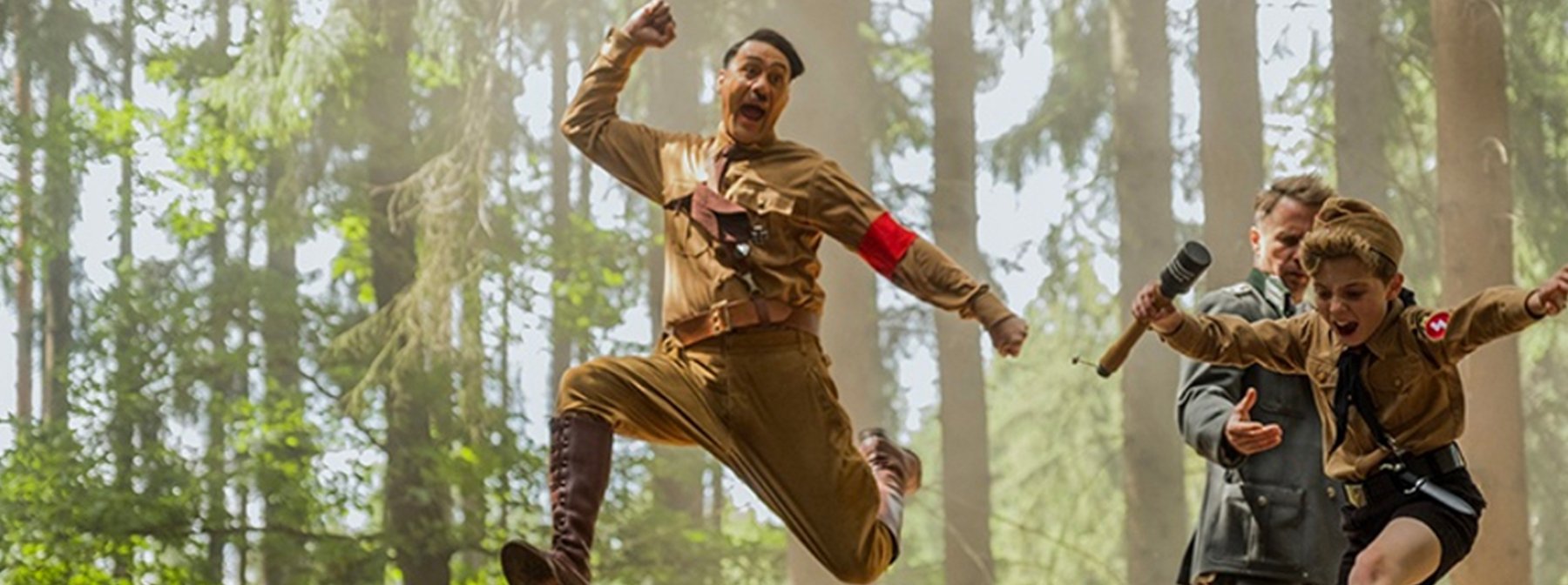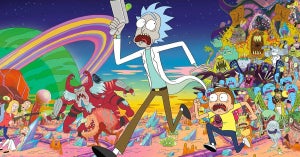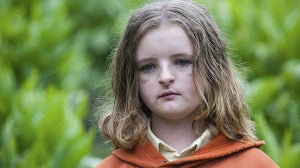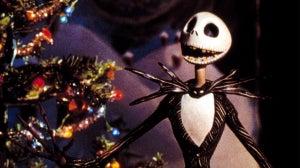
Admittedly, the trailer reveals much of the film’s almost too on-the-nose humour, but this humour works.
Jojo Rabbit goes out of its way to humiliate Nazis and create a story about how hatred is learned. Waititi imbues the film with his dry and wacky sense of humour to make a comedy with a deeper message about the effects of hate.
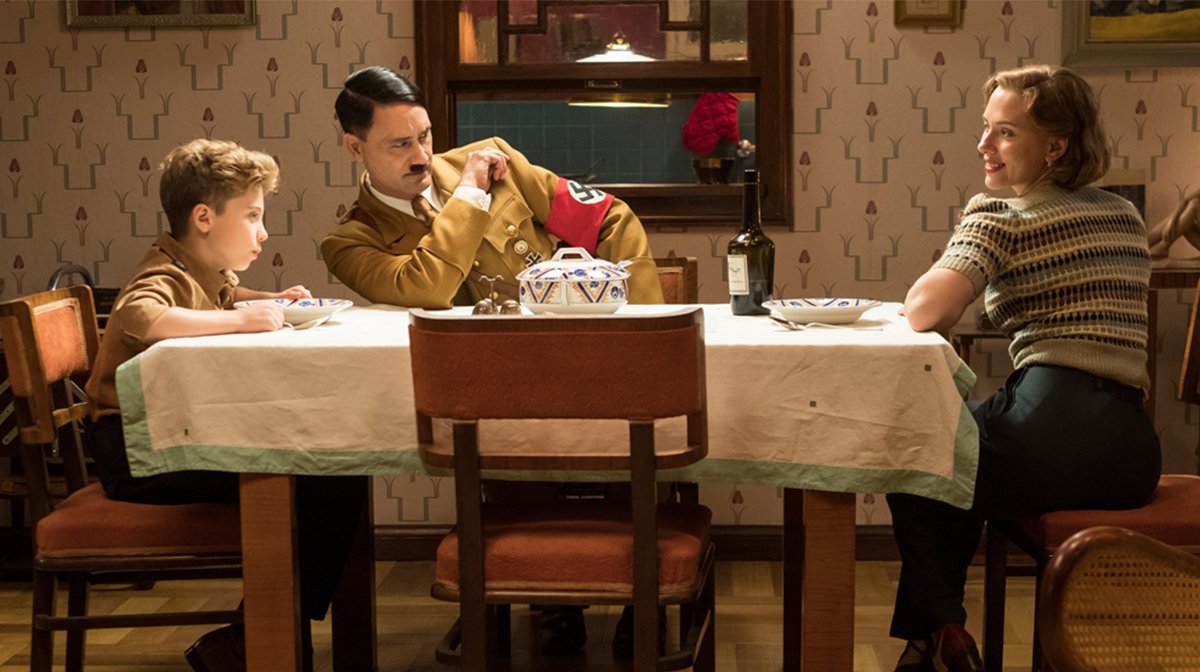
The titular Jojo 'Rabbit' Betzler, played by the adorable Roman Griffin Davis, is a 10-year-old German boy who is obsessed with Adolf Hitler, to the point that the dictator (Waititi) becomes Jojo’s imaginary friend.
All Jojo knows is a world full of vitriol and hate, so he adopts those ideologies to fit in. He never seems to take off his Hitler Youth uniform, and constantly spits out Nazi propaganda at his mother, Rosie (Scarlett Johanson), when she says he is too young to be embroiled in politics.
He attends a Nazi camp which is led by Captain Klenzendorf (Sam Rockwell), but when he over enthusiastically throws a grenade and blows himself up, he has to return home.
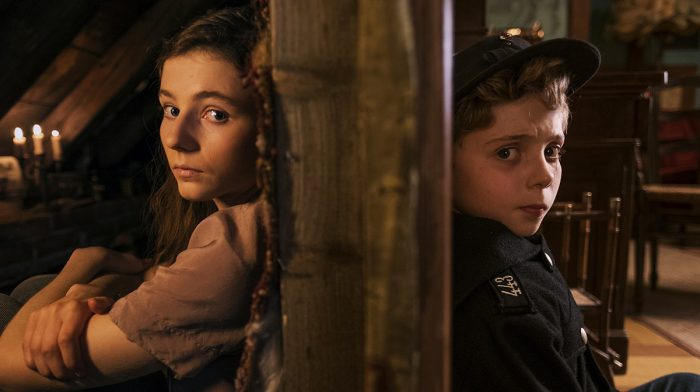
Back with fresh scars and an altered gait, Jojo must learn to serve the party however he can. He puts up propaganda posters, hands out conscription notices, and collects metal for Hitler.
He lives and breathes the Nazi party, believing it to be the one thing that gives him meaning.
But Jojo’s worldview is completely flipped upside down when he realises his mother has been hiding a young Jewish girl, Else (Thomasin McKenzie), in their attic. He must confront what he has been told to hate and slowly learns that perhaps the Nazis were wrong the whole time.
https://www.youtube.com/watch?v=tL4McUzXfFI
Importantly, the Hitler of Jojo’s imagination is an outlandish one. Waititi plays him with a sloppy accent that slips from New Zealand, to German, and back again with each line. But that laziness adds to the ridiculousness of the character. There is no care given to Hitler, or attempts to make him appear anything but awful.
That awfulness is filtered through the lens of child, so it takes the form of tantrums, fits of giggles, wild dances, and pouting. When Jojo is eating scraps of bread, Hilter is shown eating a mound of meat in the shape of a unicorn’s head. When Jojo is angry, Hilter is yelling those thoughts at someone.
He is a vehicle for Jojo’s frustration and fantasies. It is a friendly Hitler who a kid looks up to, no matter how strange it seems.

This is a film about learning hate. Jojo Rabbit begins with Jojo running to a camp where he learns how to be a Nazi. It is framed like he is just going to a summer camp, but instead of learning how to tie knots, he learns how to shoot guns. He is made fun of by the older kids for not wanting to kill a rabbit; even though Jojo is loyal to the party, he is not yet a killer.
Childhood innocence and excitement is weaponised, taken up by evil adults to create a new generation of hate-filled Nazis. It is no wonder Jojo spews their ugly propaganda. He is scared not to, made to think that he is nothing if he does not throw his entire being in his Nazi identity.
Waititi’s comedy is extremely on-the-nose and obvious, which is pitch perfect for a film such as this. Waititi is not working in metaphors or subtlety, he has a very pointed message he wants to deliver: Nazis are stupid and should be seen as such.
In conveying that message from the eyes of a child, we can see how people grow up to hate those different from them. It is not an excuse for hatred, but rather a way to understand it and confront it. Children just want to please those around them, no matter the cost.
https://www.youtube.com/watch?v=VTqd4yNFuSw
The one downfall of Jojo Rabbit is its meagre attempts to redeem Rockwell’s character. It is one thing to show a child growing to understand his hate-filled world, but it is another to try and make the audience empathise with a persistent racist.
No redemption arcs are necessary for the Nazi adults, particularly the ostentatious and drunk captain, yet Waititi strangely includes one.
It seems to go against the entire narrative of the film and does leave a questionable taste in your mouth. Yes, this is a satire, but aren’t we supposed to laugh at the Nazis, not feel bad for them? In this moment, the message becomes fuzzy.
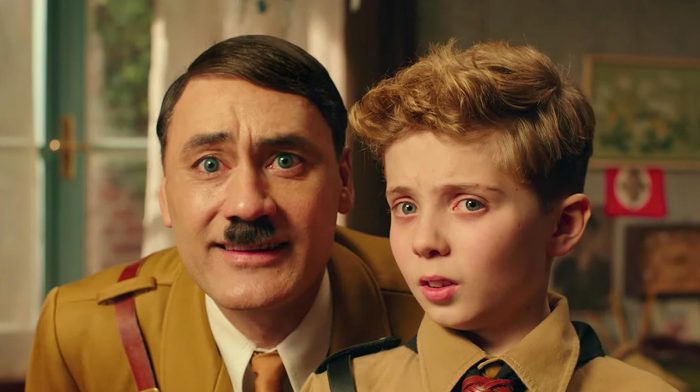
In lieu of that misstep, Jojo Rabbit is an important piece of comedy that wants to confront hatred head on. Waititi, who is Jewish himself, does not want to avoid uncomfortable material; in fact, he wants to shove it in our faces until we can’t ignore it.
He dresses up the story in bright colours, comedy, and a fun soundtrack to make it initially palpable, then hits the audience even harder.
Jojo Rabbit is a comedy for a time where Nazis aren’t just a piece of ancient history. It is a film about looking at violence from a different perspective and understanding how to potentially avoid it all together. Don’t let the cheesy tagline fool you; Jojo Rabbit is a charming and clever film with something very important to say.
★★★★★
Jojo Rabbit will be released in UK cinemas 3rd January 2020.
Are you excited for Jojo Rabbit? Let us know on social media.
For all things pop culture and the latest news, follow us on Instagram, Twitter, Facebook and TikTok.

